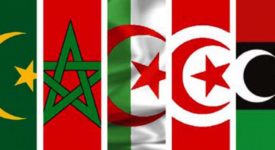The European Union has been helping Tunisia pave the way for a modern democracy based on freedoms, socio-economic development, and social justice for 6 years on from the so-called Arab Spring revolution in 2011. In the immediate aftermath of the revolution, the EU committed itself to support the Tunisian people’s transition towards greater democracy and freedom by reinforcing bilateral relations and collaboration in key areas. To further boost the mutual relations, both sides established a “Privileged Partnership” in 2012 and an ambitious action plan for its implementation.
The EU has granted a special status to Tunisia, reflecting the Union’s commitment to support its transition as the North African country tackles a number of interrelated challenges in a delicate regional context: the consolidation of democracy mostly by implementing the Constitution of January 2014, terrorist threat and socio-economic conditions characterized by high youth unemployment and extremism. The status also gives a practical expression to the shared ambition of boosting bilateral relations in every possible area – political, the economy, culture, trade and security – and of intensifying exchanges between both societies.
Since 2011, the EU has increased its financial aid by the factor of two. Tunisia is the principal beneficiary of the EU’s financial assistance in the Southern Neighborhood of the ‘umbrella’ program, which provides funds in recognition of progress made in the field of democracy and human rights. Through the combination of all sources of financial assistance – grants (more than 1.2 billion euros), macro financial assistance (800 million euros) and loans, including those from the European Investment Bank (1.5 billion euros) – the EU focuses its attention on the following key areas: first, socio-economic reforms to foster inclusive growth, competitiveness, and integration; second, consolidation of the fundamental building blocks of democracy; third, sustainable regional and local development.







